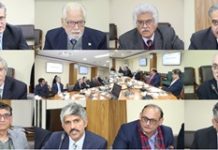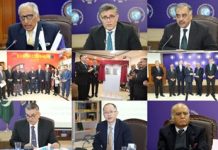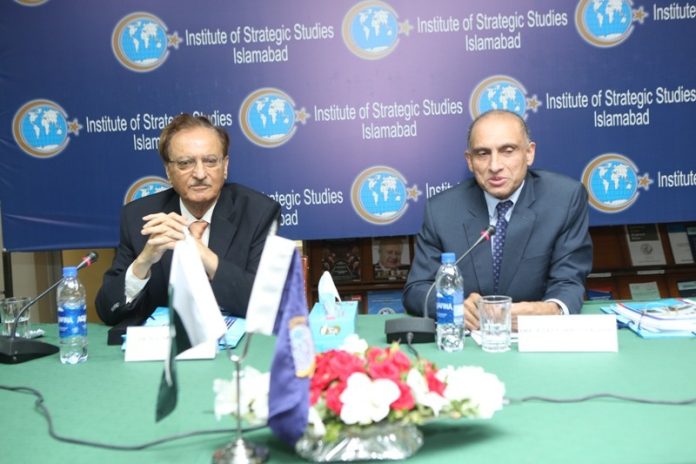PRESS RELEASE
Public Talk on “Dynamics of Pakistan’s Energy Security”
September 13, 2019
“Pakistan has been a success story in managing its energy sector despite global and domestic pressures. Pakistan is at the cusp of development and it is high time we think of energy transformation so that we are better able to deal with existing challenges to energy sector. These challenges among other issues include navigating the turbulent waters of major powers geopolitics and improving energy sector governance.” These remarks were made by former federal secretary petroleum and renowned energy analyst, Dr. Gulfaraz Ahmed at a public talk organized by the Institute of Strategic Studies Islamabad (ISSI) today.
Dr. Gulfaraz spoke about multiple issues linked with Pakistan’s management and development of energy sector. He also gave an overview of historical evolution of Pakistan’s energy mix and challenges generated as a result of increasing share of imported oil as a source of power generation. He said that energy security is a complex interplay of numerous factors that cut across many sectors of economy, governance, planning and diplomacy. Pakistan did achieve energy security in early 2000s with surplus of gas, but the mounting circular debt had brought the sector to near insolvency. Dr. Gulfaraz also talked about strengths and challenges to Pakistan’s energy sector.
Earlier, in his welcome remarks, Ambassador Aizaz Ahmed Chaudhry, Director General ISSI, extended a warm welcome to all the distinguished guests. Ambassador Aizaz said that the shortfall of energy in Pakistan became a major impediment to economic development. Even today, we experience shortfalls in the power sector and the natural gas sector, though at a much lower level than in the recent past. Power shortages cost billions of rupees to Pakistan’s economy every year. He said that energy is the bloodline of industry and economy and the Government is taking diverse measures to circumvent this crisis. Expansion and refurbishment of the existing power plants, induction of new power plants, and encouragement of renewable energy are some of the measures being taken.
The public talk was well-attended by foreign diplomats, members of academia, energy sectors officials, members of think tank community and students.












